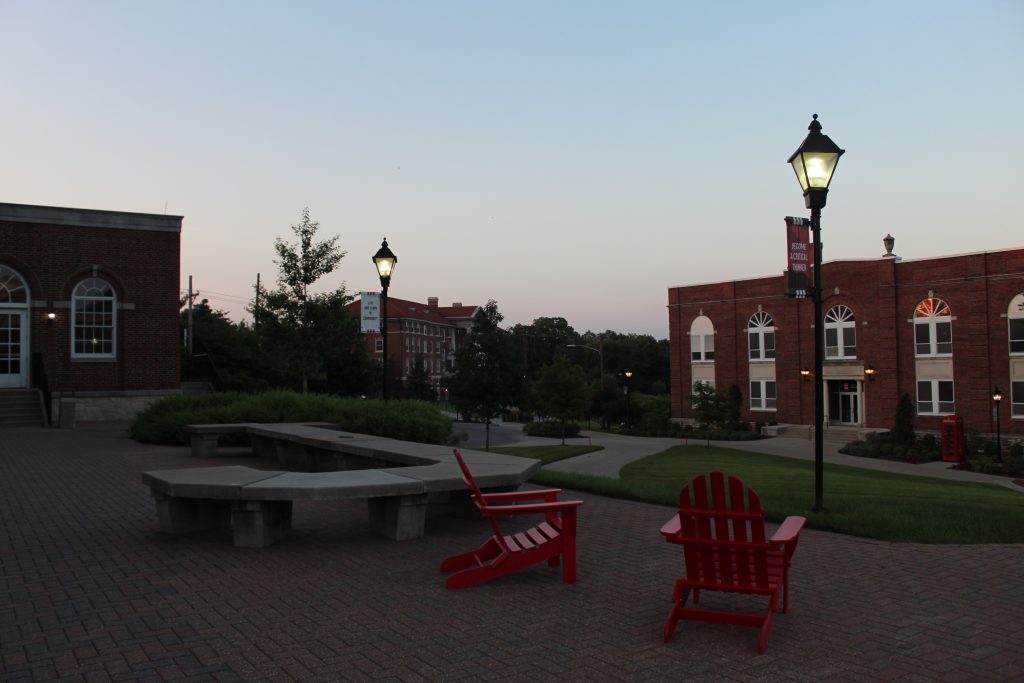
This semester has been unique for college students nationwide. As many schools remained online through the fall semester due to COVID-19, William Jewell College came back for in-person classes. As we near the end of the fall semester, students, staff and faculty alike have begun to wonder what the next semester will look like.
The main questions heard around campus include: What will we be doing for classes next semester? How will policies change? What will quarantine look like for students who may be positive or exposed to someone who is?
To get some sense of what students can expect, The Hilltop Monitor reached out to President Elizabeth MacLeod Walls to get the administrative perspective.
MacLeod Walls’ responses were optimistic, which may bring a sense of relief to many.
“Faculty and staff began planning our response to the pandemic in February 2020. Careful planning and risk mitigation through common sense protocols has led to far fewer cases at Jewell than at our peer institutions,” MacLeod Walls said.
According to MacLeod Walls, there has been extensive planning for the next semester as well. MacLeod Walls did not detail the specifics of these plans.
MacLeod Walls discussed how Jewell’s cases compare to other Missouri colleges.
“If you look at the dashboards of other schools – both public and private – throughout the Region, you’ll see that by comparison, our cumulative number of cases is low,” said MacLeod Walls.
Jewell has had 26 positive cases and a “[s]mall cluster of positive cases on the football team and in the KA house,” according to weekly Operation Safe Campus reports from Joe Garcia, vice president of finance and operations, as of Nov. 10.
While the exact number of cases have not been released, Jewell’s total number of COVID-19 cases has remained relatively low since Aug. 28. Compared to Clay County, which is currently at 6,203 total cases, the College is doing extremely well.
In terms of possible improvements and modifications, MacLeod Walls explained potential changes in Jewell quarantine housing.
“We have run two tabletop scenarios with faculty and staff since the pandemic started in an effort to identify gaps. Our most recent tabletop helped us to see that we needed a back-up facility for quarantining if Browning ever hit capacity,” MacLeod Walls said. “We contracted with Home2Suites to ensure that we had safe and comfortable housing for our quarantining students. With the recent post-Halloween uptick in cases, we have increased residency in Browning, but we feel confident that we could exercise our alternative at Home2Suites if needed.”
Home2Suites is a Hilton extended-stay hotel, with the closest location only about eight minutes away from Jewell’s campus. The backup quarantine location provides additional comfort for students who may be concerned about returning home to quarantine and endangering loved ones.
Finally, MacLeod Walls emphasized her belief that the College has been able to keep politics and the pandemic separate.
“The students have been vigilant about wearing masks throughout campus, which is the best thing they can do to mitigate spread. My strong and ongoing encouragement to students is that they avoid gatherings off-campus.,” said MacLeod Walls. “I am so proud of our campus, but not at all surprised, that we upheld civility, engaged in meaningful dialogue, and maintained our COVID-19 protocols throughout the election. Well done, Jewell!”
Overall, MacLeod Walls emphasized the College’s efforts to keep students safe and active on campus.
While the uplifting response from the administration is encouraging, the perspective of students is also important.
Kennedy Marks, first-year theater major, differed from MacLeod Walls in her opinion of how seriously her peers are taking the pandemic.
“I don’t feel like my peers [are taking] the pandemic very seriously. There were many parties that took place and many students would crowd within hallways without wearing masks,” Marks said.
Isabel Warden, sophomore public relations and theater major, echoed Marks’ comments.
“It depends on who you ask… There are definitely some who have not [taken COVID-19 seriously],” Warden said.
Both the students agreed that they felt the campus was doing decently, but are wary of the community letting their guard down.
“Just because we are a smaller, more isolated campus, does not mean that we are impenetrable to COVID-19,” Warden said.
With cases spiking in the Clay County and Kansas City area, the campus is especially vulnerable to an outbreak.
When asked if they thought the campus could improve at all, both students pointed to the College’s communication as their primary concern.
Both Warden and Marks felt that students are not kept in the loop as well as they should have been. They expressed confusion at the campus being at threat level B for the majority of the semester so far. Students were under the impression that the campus would more readily go to threat level C when students and employees tested positive.
When Marks and Warden were asked if they thought students were being responsible and keeping politics separate from the pandemic response, both said that wearing masks has been connected to politics when it really shouldn’t be. Both claimed that students aren’t wearing masks as much as employees of the College may think. Marks and Warden speculated that outside of the classroom and more regulated spaces, many students may not even wear masks at all.
Relative to other college campuses and general regional numbers, the College has successfully managed to keep COVID-19 cases low. However, some student perspectives on the campus response appear to conflict with the administration’s perspective, particularly regarding student vigiliance and communication. Regardless of the differing perspectives, one thing is certain: it is every student’s responsibility to wear their masks properly, care for others and be safe during this pandemic.
